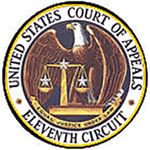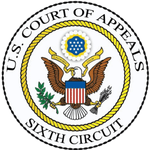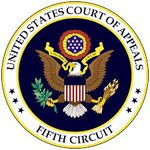
NEWS (2/11/21) — Alabama: In a splintered vote with three conservative justices noting their dissents, the U.S. Supreme Court denied the Alabama Attorney General’s application to vacate a federal appeals court injunction that had halted that night’s scheduled execution of Willie B. Smith III unless the state permitted his pastor to be present in the death chamber to provide religious comfort during his execution. In a second night-of-execution order, the Court lifted a stay of execution based on Smith’s claim under the Americans with Disabilities Act that Alabama had failed to make accommodations for his intellectual disability with regard to his selection of the method of execution.
The Court’s vote to leave in place the injunction issued by the U.S. Court of Appeals for the Eleventh Circuit on February 10 allows litigation to move forward on Smith’s claim that the federal Religious Land Use and Institutionalized Persons Act provides him the right to be ministered to by a religious advisor in the execution chamber. Four members of the Court — Justices Kagan, Breyer, Sotomayor, and Barrett — suggested that it did, while Chief Justice Roberts and Justices Thomas and Kavanaugh dissented. In an opinion joined by the Chief Justice, Kavanaugh noted that Alabama could eliminate any statutory or constitutional challenge simply by permitting Smith’s spiritual advisor to be present during the execution.

NEWS (2/11/21) — Georgia: The U.S. Court of Appeals for the Eleventh Circuit has affirmed a Georgia federal district court’s dismissal of death-row prisoner James Lee’s habeas corpus petition.
During state post-conviction hearings, Lee’s appellate counsel presented mitigating evidence that his appointed counsel failed to investigate and present at trial, including evidence that he had developed posttraumatic stress disorder as a result of the extreme physical and mental abuse he experienced as a child. The Georgia Supreme ruled that trial counsel’s failure to develop and present this evidence was not prejudicial. The federal appeals court let Lee’s death sentence stand, holding that the state court had unreasonably applied clearly established U.S. Supreme Court caselaw when it denied Lee’s claim that his counsel had been ineffective.

NEWS (2/11/21) — Ohio: The U.S. Court of Appeals for the Sixth Circuit has denied Ohio death-row prisoner James Hanna permission to file a second or successive habeas petition raising claims relating to his brain damage and history of sexual abuse. The court held that his claims were not sufficiently different from the ones brought in his initial habeas petition to justify litigation of a new habeas petition.

NEWS (2/8 and 2/9/21) — Texas: The U.S. Court of Appeals for the Fifth Circuit has denied habeas corpus relief to two Texas death-row prisoners.
On February 9, a divided en banc court voted 10 – 7 to reinstate Melissa Lucio’s capital murder conviction for the death of her two-year-old daughter. Forensic evidence suggested that the child had not been murdered but may have died from injuries sustained as a result of a fall. In 2019, a three-judge panel of the court had granted Lucio a new trial, holding that the trial court had violated her constitutional right to present a defense by preventing her from calling two expert witnesses who would have testified that the statements she gave the police during the course of custodial interrogation after her child’s death were not voluntary.
On February 8, a circuit panel denied James Broadnax’s claim that the federal district court improperly refused to consider evidence of racial discrimination in jury selection that state prosecutors had failed to disclose during state post-conviction litigation on the issue. Broadnax contended that the evidence — a prosecution spreadsheet of potential jurors that bolded the names of prospective Black jurors — established the race-consciousness of the prosecution’s jury selection practices in the case and was circumstantial evidence that prosecutors had unconstitutionally exercised their discretionary jury strikes to remove Black jurors because of their race.
Prosecutors did not disclose the spreadsheet until state post-conviction litigation in the case had been completed, then successfully argued that federal law limited the federal court to considering only the evidence that had previously been presented to the state court.
